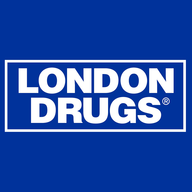


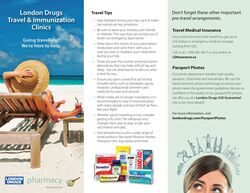
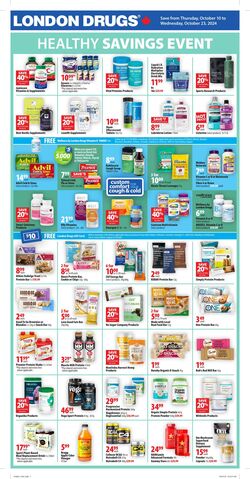

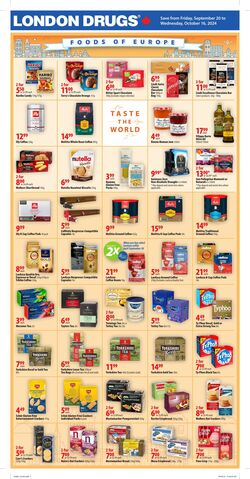

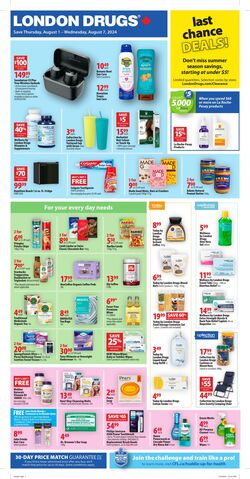



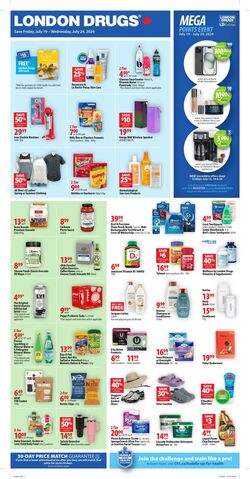
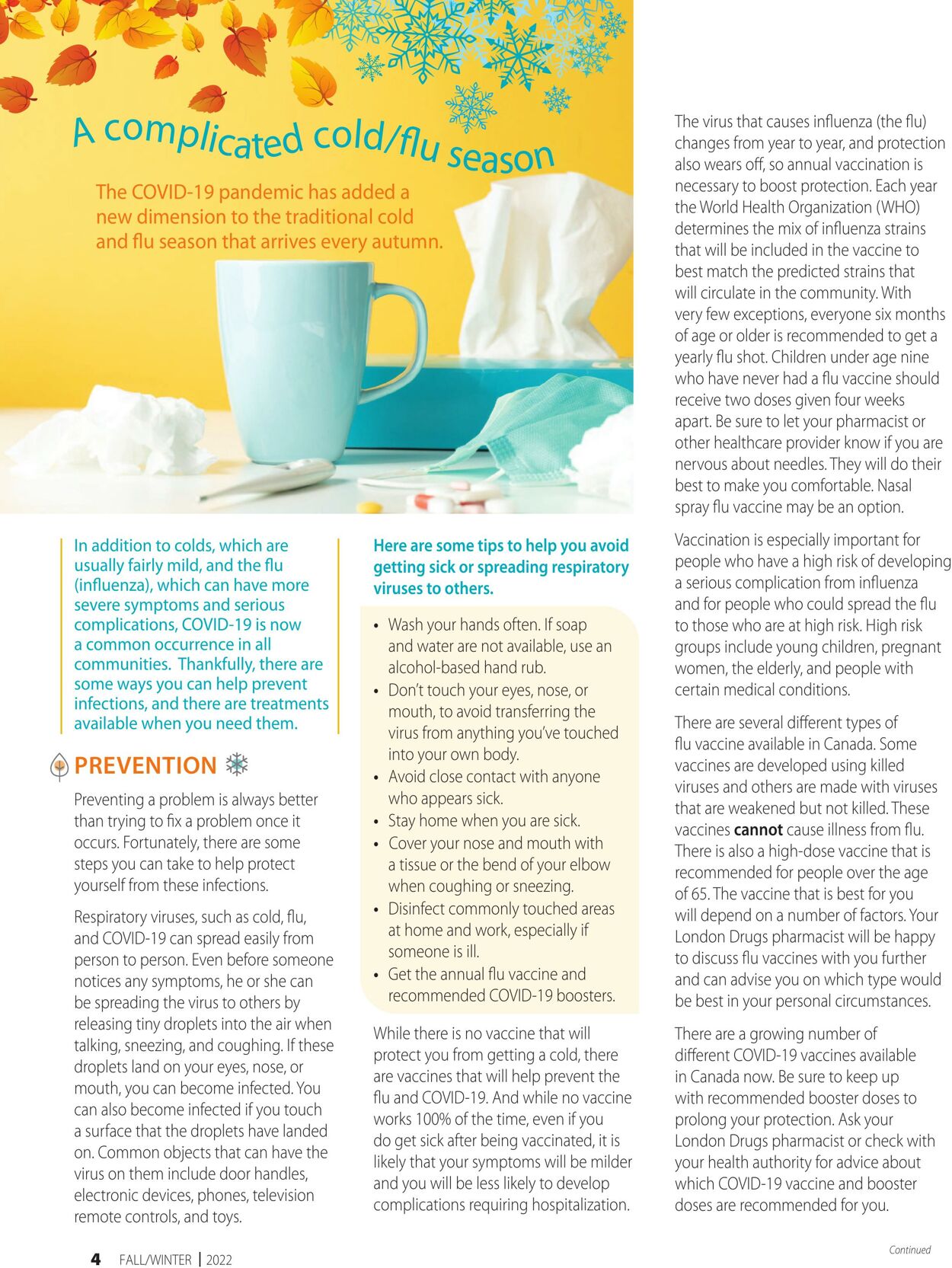
Les produits de cette circulaire
In addition to colds, which are usually fairly mild, and the flu (influenza), which can have more severe symptoms and serious complications, COVID-19 is now a common occurrence in all communities. Thankfully, there are some ways you can help prevent infections, and there are treatments available when you need them. @ PREVENTION # Preventing à problem is always better than trying to fix a problem once it occurs. Fortunately, there are some steps you can take to help protect yourself from these infections. Respiratory viruses, such as cold, flu, and COVID-19 can spread easily from person to person. Even before someone notices any symptoms, he or she can be spreading the virus to others by releasing tiny droplets into the air when talking, sneezing, and coughing. If these droplets land on your eyes, nose, or mouth, you can become infected. You can also become infected if you touch a surface that the droplets have landed on. Common objects that can have the virus on them include door handles, electronic devices, phones, television remote controls, and toys. & FALL/WINTER | 2022 -_ Tl= Here are some tips to help you avoid getting sick or spreading respiratory viruses to others. + Wash your handbs often. If soap and water are not available, use an alcohol-based hand rub. Don't touch your eyes, nose, or mouth, to avoid transferring the virus from anything you've touched into your own body. Avoid close contact with anyone who appears sick. Stay home when you are sick. Cover your nose and mouth with a tissue or the bend of your elbow when coughing or sneezing. Disinfect commonly touched areas at home and work, especially if someone is ill. Get the annual fu vaccine and recommended COVID-19 boosters. While there is no vaccine that will protect you from getting a cold, there are vaccines that will help prevent the flu and COVID-19. And while no vaccine works 100% of the time, even if you do get sick after being vaccinated, it is likely that your symptoms will be milder and you will be less likely to develop complications requiring hospitalization. The virus that causes influenza (the flu) changes from year to year, and protection also wears off, so annual vaccination is necessary to boost protection. Each year the World Health Organization (WHO) determines the mix of influenza strains that will be included in the vaccine to best match the predicted strains that will circulate in the community. With very few exceptions, everyone six months of age or older is recommended to get a yearly flu shot. Children under age nine who have never had a flu vaccine should receive two doses given four weeks apart. Be sure to let your pharmacist or other healthcare provider know if you are nervous about needles. They will do their best to make you comfortable. Nasal spray flu vaccine may be an option. Vaccination is especially important for people who have a high risk of developing a serious complication from influenza and for people who could spread the flu to those who are at high risk. High risk groups include young children, pregnant women, the elderly, and people with certain medical conditions. There are several different types of flu vaccine available in Canada. Some vaccines are developed using killed viruses and others are made with viruses that are weakened but not killed. These vaccines cannot cause illness from flu. There is also a high-dose vaccine that is recommended for people over the age of 65. The vaccine that is best for you will depend on à number of factors. Your London Drugs pharmacist will be happy to discuss flu vaccines with you further and can advise you on which type would be best in your personal circumstances. There are a growing number of different COVID-19 vaccines available in Canada now. Be sure to keep up with recommended booster doses to prolong your protection. Ask your London Drugs pharmacist or check with your health authority for advice about which COVID-19 vaccine and booster doses are recommended for you. Continued
| Nom | Détails |
|---|